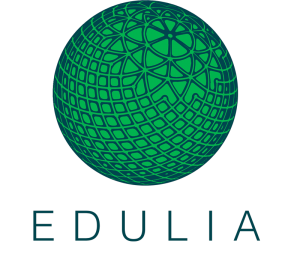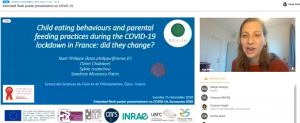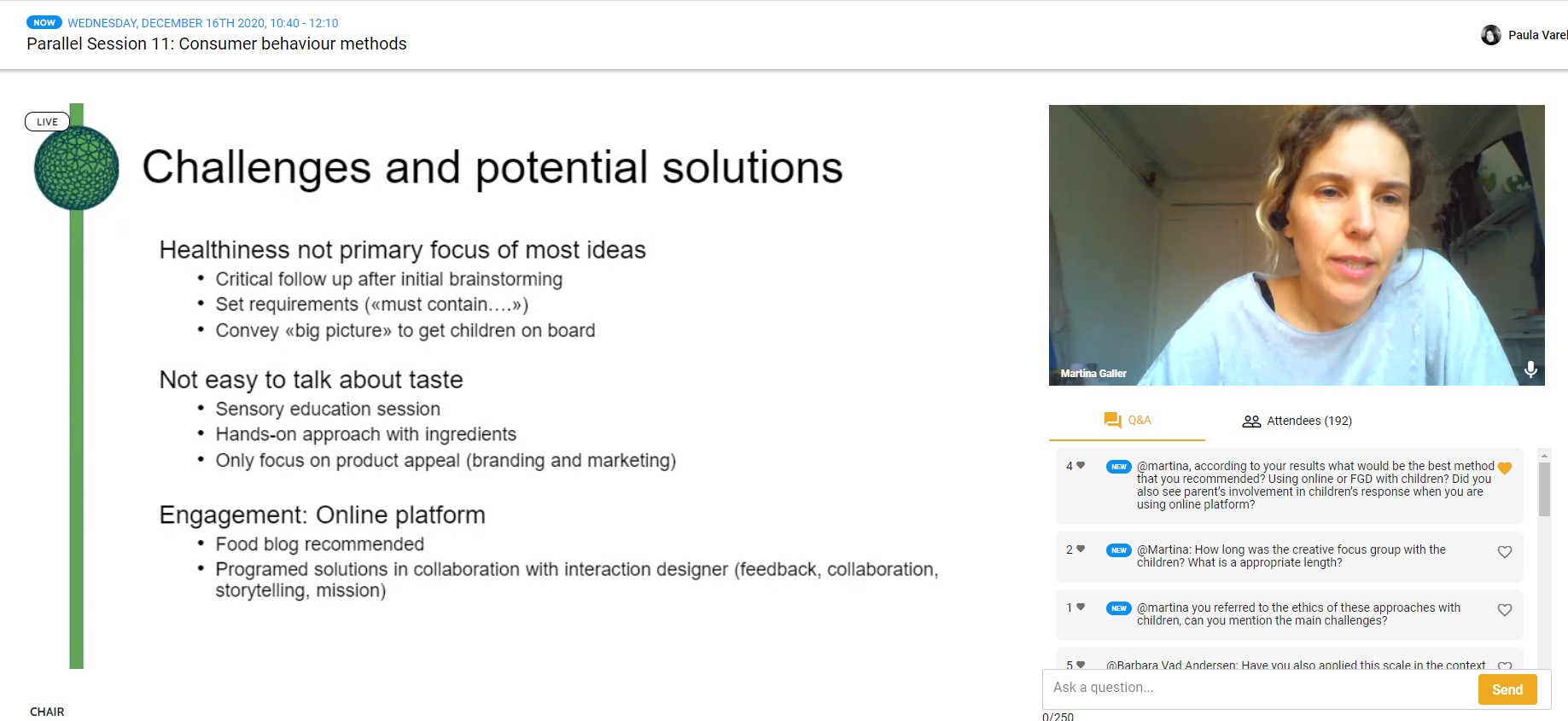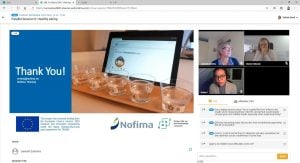Impressions from Eurosense – A sense of Innovation

Eurosense is organised every second year. The chairs of this years conference were Kees de Graaf and Betina Piqueras-Fiszman, both from Wageningen University & Research, The Netherlands. First the conference was postponed, then the conference was planned as “Live and on-demand” a combination of virtual and online conference, and finally it became 100% online. Online conferences are different, a potential advantage is less stress in terms of travelling, but although the web-platform for the conference had options for chatting and on-line meetings, the network opportunities are poorer with online conferences. And also, keeping focus from home-office is perhaps more challenging, perhaps even more in the mid of Christmas preparations.
Below we recap some of the contributions from researchers within the Edulia consortium
Awards, awards and awards
Four awards and two special mentions were given to young researchers by the European Sensory Science Society. Three of these awards were given to ESRs from Edulia:
Julia Sick (UNIFI) received the Pieter Punter Award. She presented on childrens understanding of food related emojis: “Development of an emoji-based self-report measurement tool to measure emotions elicited by foods in pre-adolescents”
Kaat Philippe (INRAE) Presented on how the pandemic has influence feeding practices in the presentation “Child eating behaviours and parental feeding practices during the COVID-19 lockdown in France: Did they change?”
Martina Galler (Nofima, Esr1) presented on creative techniques with children to develop healthy foods that they choose and like. Her talk was entitled “Co-creation of healthy food ideas with children – creative focus group vs. web-based”
Ervina (Nofima) was given special mentioned and presented the talk “Investigating the relationship between taste sensitivity and food liking in 11-year-old children”
The Established Researcher award was given to Hely Tuorila. A well-deserved distinction for an amazing career, greatly influencing the sensory and consumer science arena, much of it within sensory and children healthy eating. We are proud of counting with Hely as part of Edulia’s advisory board. The prize was handed out by E3S leader Erminio Monteleone
Other presentations
Sara Spinelli (UNIFI) presented on taste and personality with the presentation “Measuring the impact of sensory properties and personality traits on food choice: A cross-cultural study”, a research done in collaboration with the University of Nottingham
Ellen Van Kleef, senior researcher gave a plenary talk on “Understanding and engaging adolescents in improving the healthiness of their food choices” very interesting! including some results within our project through the PhD experiments from Roselinde van Nee (ESR4), both from Wageningen University & Research
Workshops
Two Edulia researchers Paula Varela Tomasco (Edulia’s coordinator) and Martina Galler (ESR1), both from Nofima, contributed to a workshop on Consumer Involvement in Research and Innovation. Martina shared her experiences with an online blog with preadolescents to better understand their food behaviour. Other participants were Mari Sandell from the, University of Helsinki, Laura Vazquez from the Basque Culinary Center, Anu Hopia from the University of Turku and Ute Walter from the Örebro universitet
Valerie Almli, (Nofima) presented in the European Sensory Society workshop on Covid-19 research on how the pandemic has influenced eating behaviour of families with children.
Ingunn Berget (Nofima) contributed from a sensometrics standpoint to a very interesting workshop organised by the European Sensory Network (ESN) on implicit methodologies for consumer understanding. Challenging methods indeed, from the design of the experiments to the data analysis. In Edulia we will be soon presenting to you some results of implicit testing with pre-adolescents.
ESR1, ESR2, ESR3, ESR4, ESR7, Eurosense






